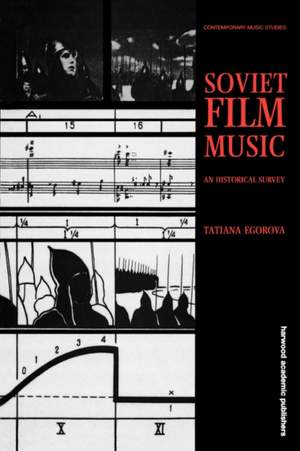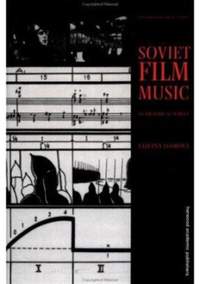Book
$79.75Printed on demand
Contents
- 1: 1917-1941
- 1: Music and silent cinema. The alternative: pianist versus composer
- 2: Evolution from the silent to the sound film. The duality of music during this transitional period in film history
- 3: General characteristics of the main types of musical dramaturgy in the 1930s and early '40s
- 4: The symphonic type of dramaturgy
- 5: The role of music in creating a mythicised image of socialism. Song in the service of ideology: the musical film comedies of Alexandrov and Pyriev
- 6: The formation of other genres in musical cinema
- 7: The development of film music in the cinema of the Soviet Republics
- 8: Elaboration of the idea of sound-visual counterpoint in the film Alexander Nevsky
- 2: 1941-1958
- 9: The fortunes of film music in the hard times of the War
- 10: Problems of ‘song' film
- 11: Extending the bounds of the musical film: initial steps towards mastering the genres of film-opera and film-operetta
- 12: A breakthrough in sound-visual cinema: Ivan the Terrible by Eisenstein and Prokofiev
- 13: Music in the post-war cinema of the late forties and early fifties. The period of imposed compromise and conformism
- 14: Crisis in the genre of musical comedy film
- 15: Music in the role of step-daughter. Multiple music clichés in the genre of biographical film
- 16: Russian classical opera and ballet in the cinema of the ‘50s: new attempts at relationships
- 17: The ideological function of music in the war film
- 18: A wind of change: film music of the post-Stalinist period
- 19: Music in screen versions of works from world literature
- 3: 1959-1969
- 20: Change of fortune. New means of expression in the language of film music. Evolution from sound-musical illustration towards the creation of an integral film sound-world
- 21: Song in the cinema of the ‘60s. Crystallization of a monothematic model in the musical drama of the song film
- 22: The mixed and chamber types of musical dramaturgy
- 23: Music by Nadezhda Simonyan and Dmitry Shostakovich in film versions of Chekhov and Shakespeare
- 24: An upsurge of interest in musical cinema. Ways of solving the problem of ‘cinema and opera'. Katerina Izmailova by Shostakovich and Shapiro
- 25: The zenith of musical achievements in the directors' cinema of the ‘60s: music for the films The Shadows of Our Forgotten Ancestors, Andrei Rublev and No Ford in the Fire
- 4: 1970-1985
- 26: The rise and fall of film music in the period of stagnation. The problem of choice: the semi-official film, the commercial ‘hit' or auteur cinema
- 27: Human tragedy as reflected in film music
- 28: Extending the expressive means of film music. A search for new models of stylistic interaction between music and the other components of screen synthesis
- 29: Breakthrough into the future: film music in the work of Artemyev, Schnittke, and Gubaidulina in the 1980s
- 30: The cinema musical: a change in orientation. A transition from the classics to the revue film and the musical. The first Soviet screening of a rock-opera
- 5: 1986-1991
- 31: ‘Black wave' aesthetics and music. The crisis of film music under conditions of intellectual and spiritual depression in society, and the development of tough naturalist cinema in the period of the disintegration of the Soviet Union
- 32: The innovative experiments of Alexander Sokurov and Andrei Chernykh: creating a multi-layered polyphonic sound score and a ‘musical' film without music




